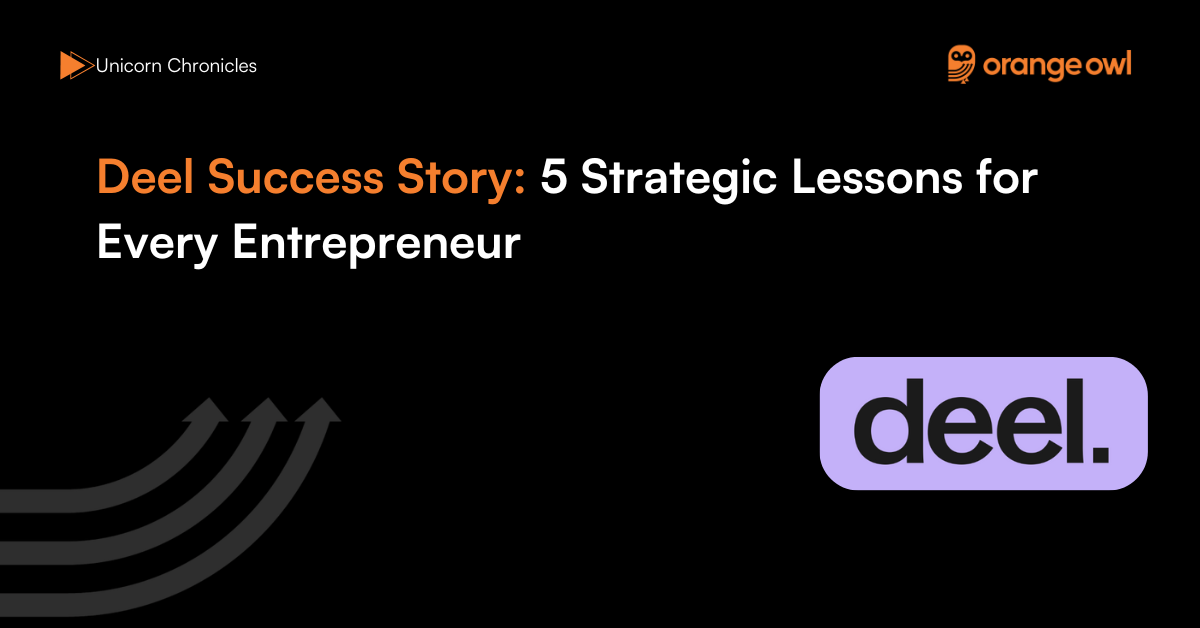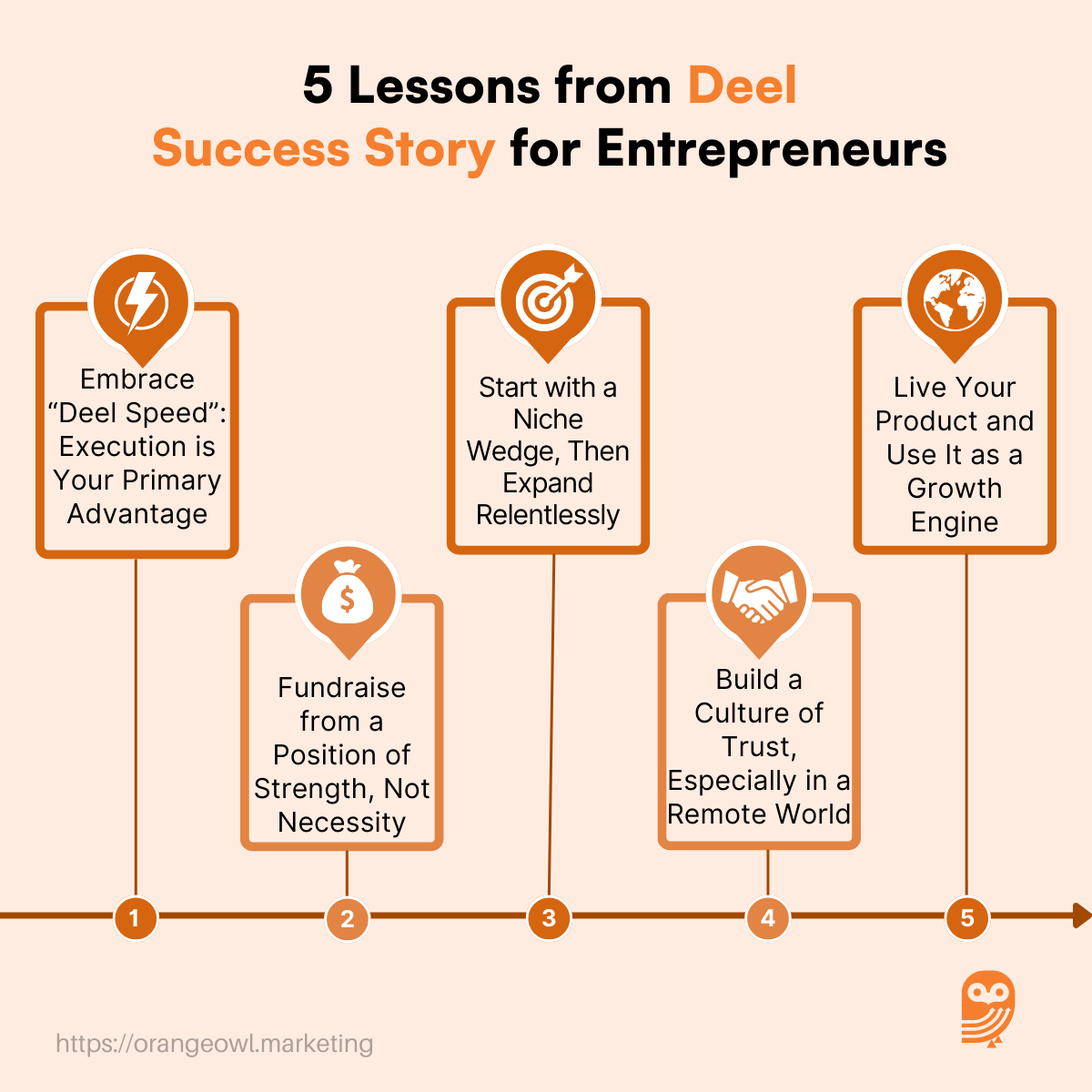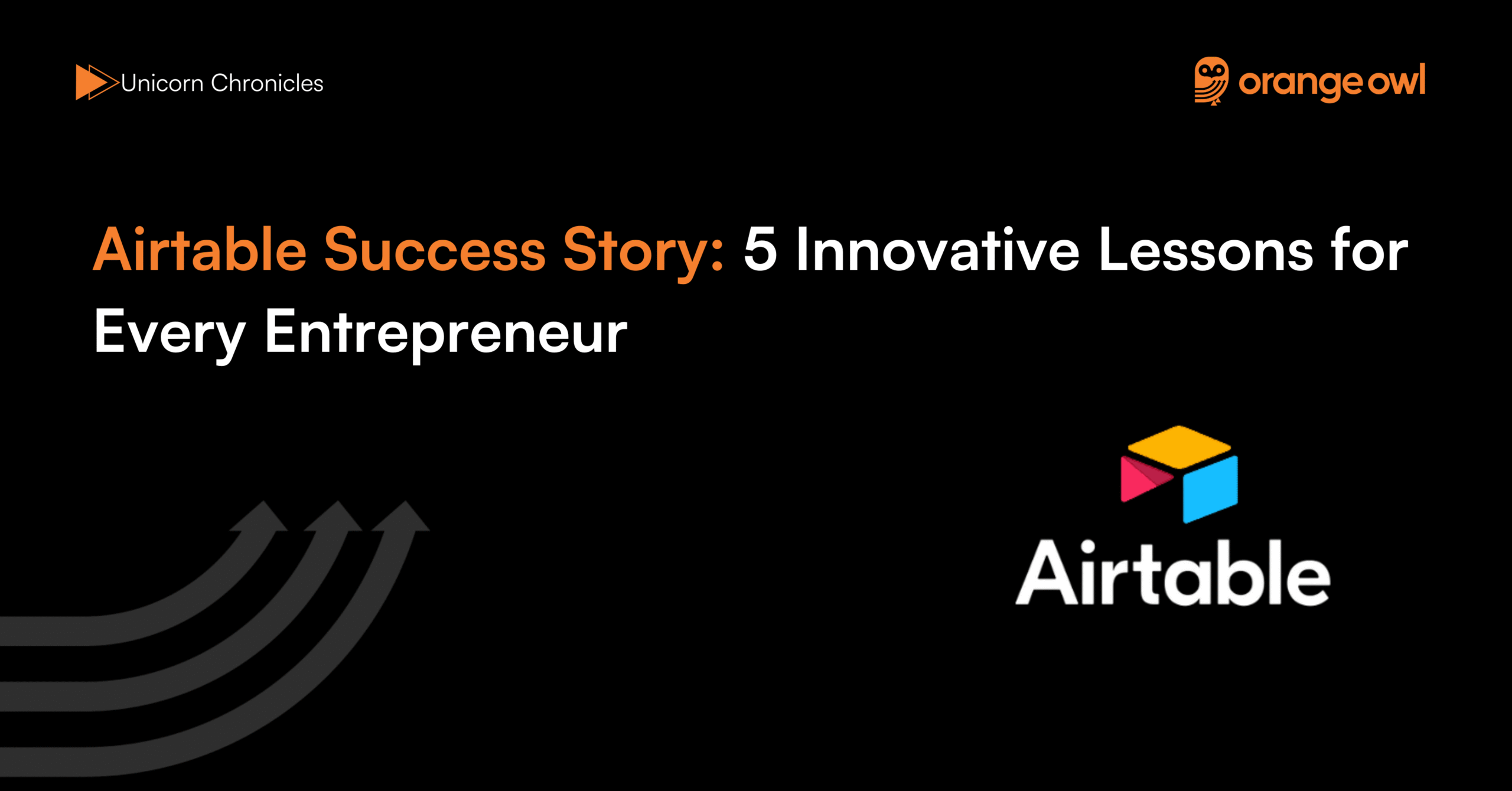Deel Success Story: 5 Disruptive Lessons for Every Entrepreneur
Vivek Goel
August 26, 2025

Table of Contents
Introduction
In 2019, Alex Bouaziz and Shuo Wang embarked on a mission to solve a problem that was rapidly becoming critical in a globalized world: hiring talent across borders. The existing infrastructure for international hiring was a patchwork of risky, expensive, and inefficient solutions. Companies either paid contractors through platforms like PayPal with little to no compliance, relied on costly local agencies that took a significant cut, or undertook the monumental task of setting up a legal entity in every new country.
Bouaziz and Wang founded Deel to demolish these barriers. As Bouaziz succinctly puts it,
“We basically built full stack HR and payroll for Global team”.
Their vision was to build the infrastructure that would make hiring someone internationally as easy as hiring them locally. Instead of just patching a broken system, they set out to build a new one from the ground up—one that was unified, compliant, and delivered a first-class experience for both employers and employees.
By focusing on a seamless, technology-first approach, Deel quickly became the go-to solution for companies looking to tap into the global talent pool. In just four years, Deel has grown to serve thousands of businesses, reaching a $12 billion valuation and generating over $300 million in annual recurring revenue. With a team of over 3,000 people spread across more than 100 countries, Deel not only built a product for remote work but embodied its principles entirely. In an industry defined by borders and bureaucracy, Deel proved that with the right platform, talent has no limits.
Origin Story
The concept for Deel was born from the founders’ own experiences as international individuals who understood the friction of global work. While participating in the Y Combinator accelerator program in 2019, Alex Bouaziz and Shuo Wang initially hypothesized that the biggest barrier to global collaboration was a lack of trust between parties. Their first idea was a smart-contract-based system to automatically release payments once tasks were completed.
However, after talking to customers, they realized they had misdiagnosed the problem. The real challenge wasn’t trust; it was the sheer complexity of compliance, contracts, and payments. The turning point came when a friend used their early platform to process an $8,000 payment tied to a contract. This revealed the immense value of bridging two traditionally separate functions: the legal agreement and the financial transaction. The key insight, as Bouaziz recalls, was unlocking
“the Peace of Mind of doing it right”
for customers.
This realization led to a frantic pivot just one week before their YC Demo Day. They abandoned the smart contract idea and focused on building a unified platform to handle contractor agreements, compliance, and payments. This new direction immediately resonated. Deel’s initial product offered a radically simplified way to engage international contractors, ensuring that local labor laws were respected and payments were seamless.
Business Landscape and Challenges
When Deel launched in 2019, the global hiring landscape was fragmented and underserved. The concept of remote work was still a niche idea, and companies that hired internationally faced a pick your poison scenario with three unattractive options:
1. Direct Contractor Payments: Using services like PayPal or Wise, which offered no compliance checks, no formal contracts, and left both parties exposed to legal and tax risks.
2. Local Agencies: Engaging third-party firms in each country that would handle payroll but often charged exorbitant fees, sometimes as high as 50% or more of a worker’s salary, while offering little transparency or control.
3. Entity Establishment: The traditional approach of opening a foreign subsidiary, a process that was incredibly slow, expensive, and only feasible for large corporations making a significant investment in a single country.
Deel’s primary challenges were not just competing with these methods but fundamentally changing the market’s mindset:
1. Market Education: Deel had to convince early customers that the “easy way” of sending money via PayPal was not compliant and posed significant risks. This required educating the market on the complexities of international labor laws.
2. Building a Global Compliance Engine: Unlike software that can be deployed globally with minor changes, HR and payroll are hyper-local. Deel had to build an infrastructure that could navigate the unique legal, tax, and benefits systems of hundreds of countries.
3. Scaling Trust and Operations: As a fully remote company from day one, Deel had to build a high-performance culture without a physical headquarters. Scaling its own team from 2 to 3,000 people in four years while maintaining alignment and execution speed was a monumental operational challenge.
However, the global shift to remote work during the COVID-19 pandemic acted as a massive tailwind, transforming Deel from a useful tool for tech startups into an essential infrastructure for businesses of all sizes worldwide. Deel didn’t just have a product ready; it had the right product at the exact moment the world needed it.
Growth Strategies – Deel Success Story
Deel’s growth from an idea to a $12 billion company in under five years was driven by a relentless focus on speed, execution, and product expansion.
- A “Wedge” and Expand Product Strategy: Deel began by solving the most immediate pain point: hiring international contractors. This served as a “wedge” into customers. Once trust was established, Deel expanded its offerings to include full-time employees through its Employer of Record (EOR) model, global payroll for companies with their own entities, and eventually a full-stack US HR and payroll platform, creating a single system of record for a company’s entire workforce.
- A Culture of “Deel Speed”: A core tenet of the company is moving with extreme urgency. This philosophy, known as “Deel Speed,” is about being hyper-responsive and proactive. Bouaziz defines it simply:
“Never push things to tomorrow if there’s something you can do today just do it today”.
- Remote-First as a Superpower: By being a remote-first company from its inception, Deel used its own product to build its team. This gave it access to a global talent pool, allowing it to hire the best person for a role regardless of location and scale its headcount at a pace that would be impossible with a traditional office-based model.
- Capital Efficiency and Strategic Fundraising: From its seed round, Deel focused on disciplined spending and maintaining a low burn rate. This allowed the company to fundraise from a position of strength and control, not desperation. This financial discipline gave them leverage in negotiations and ensured they always had ample runway to execute their ambitious plans.
Marketing Strategy
Deel’s marketing strategy was less about traditional advertising and more about becoming an indispensable part of the startup and technology ecosystem.
- Community and Founder-Led Growth: In its early days, Deel grew through word-of-mouth within communities like Y Combinator. The founders were deeply engaged with their initial customers, often friends and peers, which helped them build a product that perfectly addressed the market’s needs. This created a loyal user base that became the company’s biggest advocates.
- Product as Marketing: Deel’s product is inherently viral. Every time a company hires an employee or contractor through Deel, a new user is introduced to the platform. By creating an exceptional experience for the end-user—the employee—Deel ensured that talent would recommend the platform to their next employer.
- Strategic Use of Angel Investors: Bouaziz strategically brought on numerous angel investors, viewing them as an extension of the team. This approach created a wide network of influential operators and founders who not only provided capital but also cared deeply about the company’s success, opening doors and offering invaluable advice.
5 Disruptive Lessons for Every Entrepreneur
1. Embrace “Deel Speed”: Execution is Your Primary Advantage:
Deel’s culture is defined by its pace. The principle of not delaying action is a powerful lesson in a competitive landscape. For entrepreneurs, this demonstrates that speed of execution—in product development, customer response, and decision-making—can be a more significant competitive advantage than any other single factor.
2. Start with a Niche Wedge, Then Expand Relentlessly
Deel didn’t try to build a full-stack HR platform from day one. It started by solving a very specific, painful problem: paying international contractors. By mastering this niche, it built trust and a strong user base, which it then leveraged to expand into much larger markets like EOR and global payroll. This “wedge” strategy is a powerful model for tackling massive industries without being overwhelmed from the start.

3. Live Your Product and Use it as a Growth Engine
Deel is a fully remote, global company that builds tools for fully remote, global companies. By being its own first and best customer, it not only stress-tested its platform but also demonstrated its power. This authenticity accelerated its ability to hire top talent from anywhere in the world, creating a virtuous cycle where its own organizational structure became a key driver of growth.
4. Fundraise from a Position of Strength, Not Necessity
Alex Bouaziz’s philosophy on fundraising emphasizes financial discipline and control. By keeping burn rates low, Deel ensured it never had to raise money out of desperation. This approach gives founders maximum leverage. As Bouaziz advises,
“You want your destiny in your hands and you don’t want to be you know going around begging for money in order for your company to survive”.
5. Build a Culture of Trust, Especially in a Remote World
Deel operates on a principle of trusting its employees by default. In a remote environment where you can’t visually monitor work, this shifts the focus from presence to output. For entrepreneurs building modern teams, this is a critical lesson: hire great people, give them clear goals, and trust them to deliver. This fosters a culture of autonomy and ownership that is essential for scaling.
Conclusion – Deel Success Story
Deel’s journey is a masterclass in building a category-defining company for the modern era. By identifying a critical friction point in the global economy, Bouaziz and Wang transformed a complex, fragmented process into a simple, unified platform. They didn’t just build a successful software company; they built the essential infrastructure that enables businesses to access the single most important resource: human talent, regardless of location.
At a time when the nature of work was fundamentally changing, Deel provided the picks and shovels for the remote work gold rush. More than a disruptor, Deel has become an enabler of global opportunity with a clear mission:
“to help hundreds of millions of people get to work for the best companies in the world regardless of where they’re from”.
For startups and theentrepreneurs, Deel’s success story is a powerful playbook on the importance of speed, strategic focus, and building a culture that reflects the future you are trying to create.


